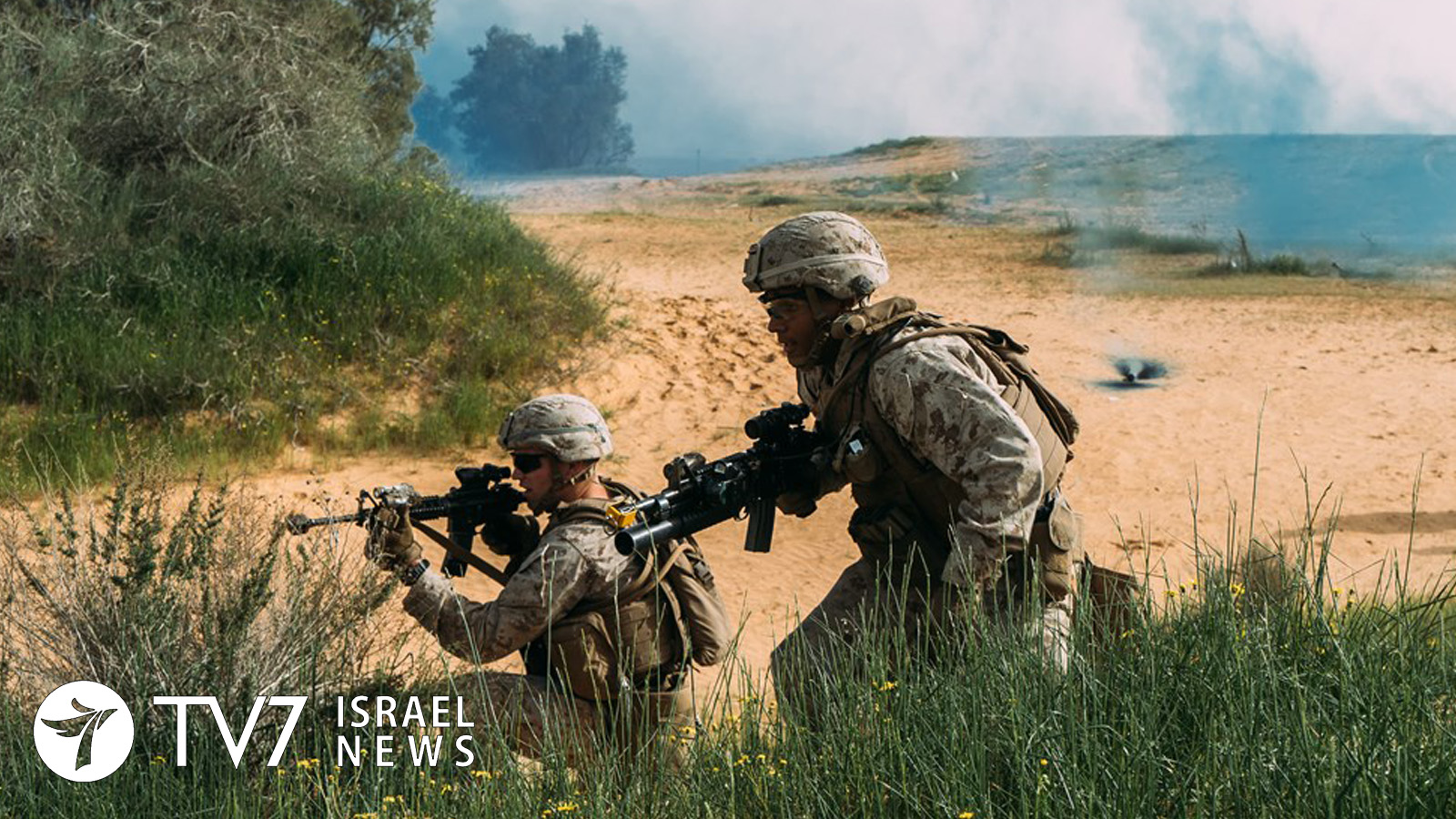Different conditions, similar conclusions
By Amir Oren
The United States Marine Corps prides itself on being tough, dedicated and up to any challenge thrown its way. It is not a full-fledged branch, as a “sea service” junior to the US Navy, yet its warriors have made their mark in campaigns and operations throughout the years and around the globe – which along with an eagle and an anchor appears on the Marines’ emblem.
Israel’s Defense Forces have ling been likened to the USMC because of the similarity in their character, especially as regards the regular formations – Divisions, Air Wings – and their constant preparedness to spring into battle. The Marines have their own aviation assets – including F-35 fighters – as well as tanks and artillery, in one close-knit community. This may be one reason why several recent Marine leaders – James Mattis, John Allen, Joseph Dunford – have befriended their Israeli brothers-in-arms and found their exchanges extremely useful.
Now comes another recently retired Marine General Officer, John Toolan, who calls on his old Corps to take this relationship to another level and look at the multi-year plan shepherded by Chief of General Staff Aviv Kochavi, Tnufa (Hebrew for “Momentum”), as a model for adapting the Corps to its new missions and priorities.
It is interesting to compare the two 3-stars road to the top in their respective Militaries. Toolan, at 66, is 10 years Kochavi’s senior and wore his uniform for eight years before Kochavi was inducted. But Kochavi was. Colonel in command of the IDF’s leading infantry brigade, the 35th Paratroopers’, three years before Toolan, the revered Mattis’ protege and his Divisional Chief of Staff on the warpath to Baghdad, got a Brigade command of his own. A Brigadier-General at 39, Kochavi commanded two Divisions and ran IDF’s operations for a total of seven years, including graduate studies in the US, before being getting his second Star and appointed Director of Militart Intelligence, one of the key positions in the entire Israeli system of government.
Toolan got his first star three years after Kochavi, than was quickly promoted again for a Division command (which in the US Military goes to a Major-General; the IDF is one rank short in its General Officer positions). One reason is that for an officer’s first 25-30 years of service, promotion is slow and the wait between ranks long, but if he survives the competition and clears these hurdles, the clock starts ticking, as he must retire no later than at age 60-62 (the latter being Toolan’s when he left the service in 2016). If he is to be elevated to 3- and perhaps 4-star positions, it must be a dash as distinct from the previous slog.
Armed with his experience in two Iraq wars, Afghanistan deployments and running the Marines’ doctrine and education, Toolan – apparently up to date on developments in foreign Militaries – used a website monitored by his former colleagues to recommend that they be inspired by the model set by Kochavi in his almost two years as Israel’s top soldier.
“Momentum”, Toolan wrote in a Marine Corps Times column which was approvingly read in Hakirya, the Tel Aviv mini-Pentagon, “no longer focuses on seizing and holding territory. Instead, the IDF focuses on using enhanced sensors and precision weaponry that can shorten the ‘kill chain’ between identifying and eliminating a target.
Israeli technologies are effective and the U.S. military and defense industry are learning from their experiences.”
His advice to the Corps Commandant, Gen. David Berger, whose task is to transform his Marines from counter-terror and security operations to a possible clash with Russian and Chinese forces – see what the Israelis do and take from it what could benefit the Marines, with all the differences duly noted.
Gen. Berger did not respond yet to Toolan’s public advice, but there are two encouraging indicators. His education includes a Master’s from Johns Hopkins School of Advanced Internanational Studies, where Kochavi also studied, and Berger is the only Chief to remain untouched by the Covid-19 group infection which hit the Joint Chiefs of Staff earlier this week, after being exposed to an ailing Coast Guard officer. Apparently, Berger is not only as tough as a Marine, but also smart – or lucky.
